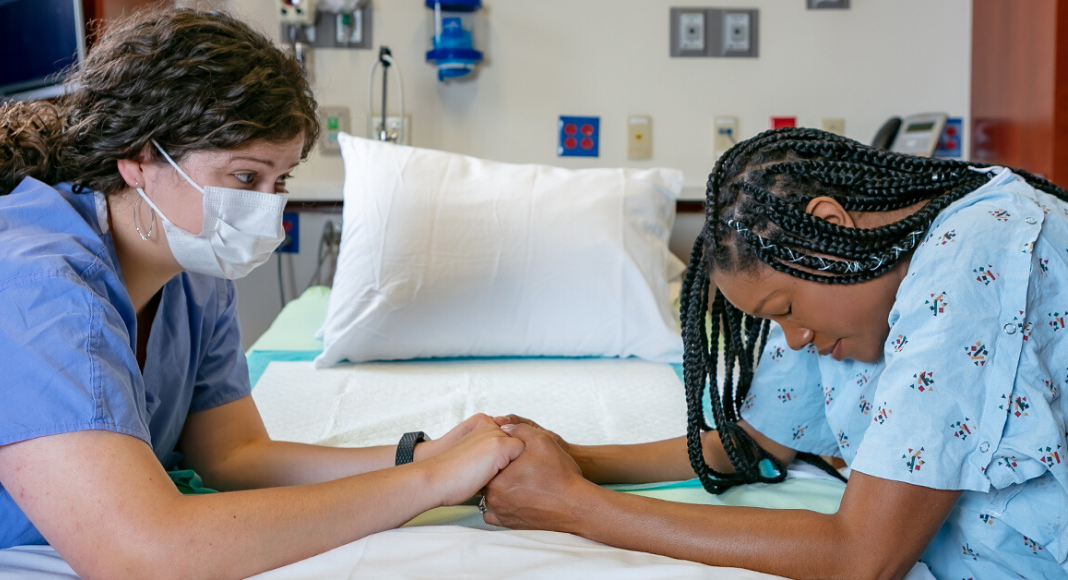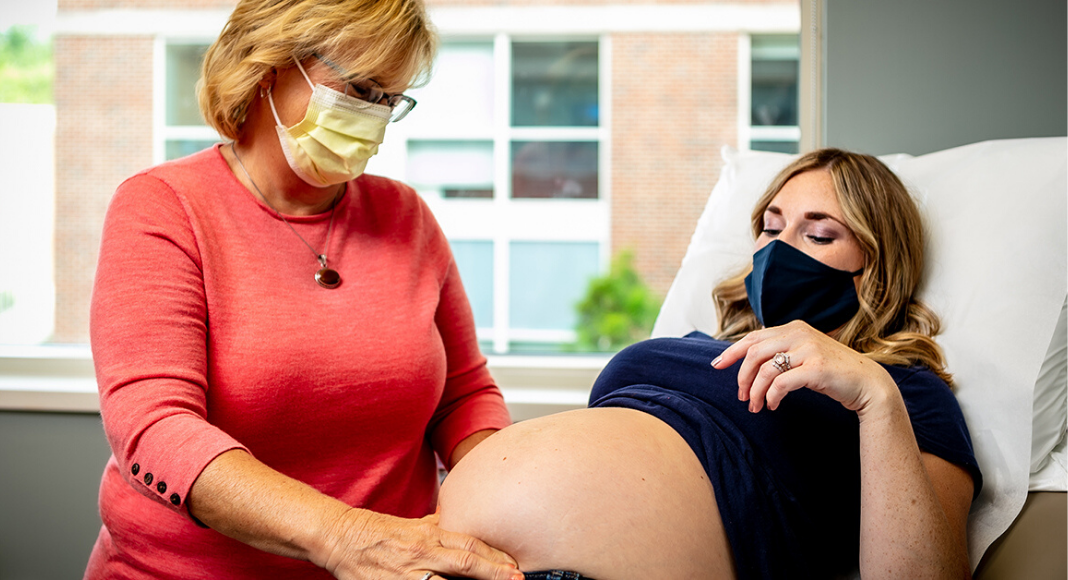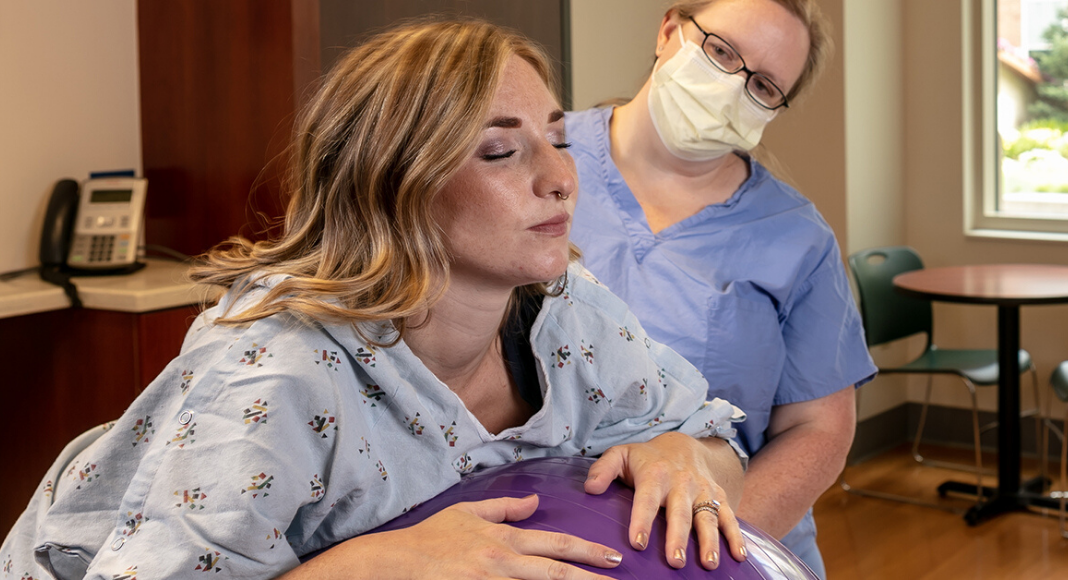The official use of midwives may have started over 500 years ago, but in recent years they have become quite the popular option for expecting mothers in the United States (Midwifery has been the standard of care for years in the UK and much of Europe). Supporting a woman through prenatal care, labor, delivery, and even postpartum care, a midwife can walk beside her and offer medical aid throughout her entire pregnancy journey.
 But, what exactly is a midwife? Are they professionally educated? What qualifies a woman to take advantage of Certified Nurse Midwife (CNMs) services?
But, what exactly is a midwife? Are they professionally educated? What qualifies a woman to take advantage of Certified Nurse Midwife (CNMs) services?
While there may be many myths surrounding midwifery care, our friends Carla King, CNM and Heather Bruns, CNM from Lifestages Center for Women are here to answer those questions and common misconceptions women may have about what they do!
Myth #1: Midwives don’t deliver in hospitals.
While there are many types of midwives, most actually do deliver in the hospitals they are affiliated with.
“In the state of Ohio, Certified Nurse Midwives typically
deliver in a hospital or a birth center.”
Working closely with the doctors, nurses, and other hospital staff, CNMs are able to manage a woman’s care during labor, delivery, and postpartum in a hospital setting. This includes close monitoring of the health of mother and baby, ordering tests and procedures, and prescribing necessary medications. Midwives are able to spend more time in a mother’s room, including assisting with breastfeeding post-partum.
New moms need all the support they can get after delivery, so the extra postpartum help is appreciated!
 If a traditional hospital birth isn’t part of your birth plan, CNMs have you covered! Lifestages for Women’s Health delivers at Miami Valley Hospital South, and although it is in a hospital setting, they strive to support your vision for your birth. That includes helping you create a home-like environment as much as possible.
If a traditional hospital birth isn’t part of your birth plan, CNMs have you covered! Lifestages for Women’s Health delivers at Miami Valley Hospital South, and although it is in a hospital setting, they strive to support your vision for your birth. That includes helping you create a home-like environment as much as possible.
DMC Tip: Premier Health also offers the only water birthing experience in Southwest Ohio!
Myth #2: Doulas and midwives are the same.
“Midwives and doulas both have a passion for supporting women and promoting
physiologic birth. However, midwives and doulas have different roles. A midwife’s primary focus is to monitor the mother and baby during labor for distress or a deviation from a healthy labor process and to implement measures to keep the mother and baby safe while honoring the mother’s vision of her birth as much as possible. A doula’s role is not medical. Doulas provide emotional, physical, and informational support to the mother and her support person.” says Heather.
While doulas and midwives work closely together, the biggest difference is medical training. The midwives at Lifestages Center for Women are Certified Nurse Midwives with a completed degree in Midwifery, a Master’s Degree or Doctorate in Nursing, and are nationally certified and licensed by the State of Ohio. Whew! That’s a lot of formal education! Which is exactly what you want and expect when choosing someone to deliver your new baby.
 Doulas are not medically trained members of the birth team. Some doulas have been formally trained, or even certified (most commonly through workshops or apprenticeships), to help support the mental, physical, and emotional well-being of the mother and partner and provide non-medical comfort measures during labor and delivery. While they cannot actually help deliver the baby, doulas can still be an important part of a mother’s birth plan.
Doulas are not medically trained members of the birth team. Some doulas have been formally trained, or even certified (most commonly through workshops or apprenticeships), to help support the mental, physical, and emotional well-being of the mother and partner and provide non-medical comfort measures during labor and delivery. While they cannot actually help deliver the baby, doulas can still be an important part of a mother’s birth plan.
DMC Tip: You can -and many women choose to- have both a midwife and a doula present during labor and childbirth!
Myth #3: I’m considered high risk, so I can’t use a Certified Nurse Midwife.
While CNM’s do typically only take on low-risk pregnancies, some reasons that make you high-risk will still allow you to seek care under a midwife. Since they work closely with physicians, these factors may not disqualify you. Heather shares some insight into this myth.
“Certified Nurse Midwives work in close collaboration with physicians. In many cases, CNMs can comanage high-risk mothers so that they may continue to have midwifery care. As with all of our patients, we work hard to help provide a fulfilling and empowering pregnancy and birth experience. During your labor, we would monitor you very closely and be in close contact with the physician.”
Regardless of if you are are high or low risk, Lifestages Center for Women’s Health offers MothersEmpowered, a group prenatal care option that uses the CenteringPregnancy model. This is a group of 8-10 women who are all due in the same birth month sharing their pregnancy journey together while being led by a CNM. If you are high risk, you still may attend these group sessions, but may have additional appointments and testing.
“Women in groups report that they develop strong relationships with their fellow members, many that continue after their babies are born.”
DMC Takeaway: Talk about amazing support, no matter the situation!
Myth #4: Midwives don’t offer any pain relief during labor.
“Midwives support many types of comfort management options during labor. This can be therapeutic touch, hydrotherapy, guided meditation, oral and IV pain medications, or an epidural.” Carla explains.
 By working with women to create a personalized birth experience, midwives are able to offer many different comfort measures to support a laboring mother. While they do have the authority to write prescriptions, CNMs also focus on natural and holistic comfort measures. They work closely with an expecting mother to create a birth plan that is tailored to her personal choices, including her desired comfort management.
By working with women to create a personalized birth experience, midwives are able to offer many different comfort measures to support a laboring mother. While they do have the authority to write prescriptions, CNMs also focus on natural and holistic comfort measures. They work closely with an expecting mother to create a birth plan that is tailored to her personal choices, including her desired comfort management.
DMC Takeaway: Respecting and encouraging comfort measures are an imperative part of what a midwife does!
Even though they focus on a more natural approach, Certified Nurse Midwives are well equipped to guide a woman through pregnancy from beginning to end!













